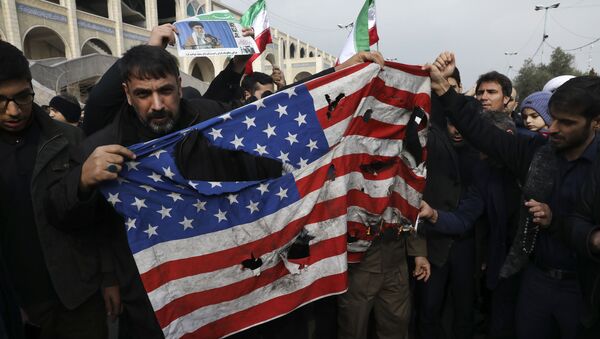The killing of Major General Qassem Soleimani, the commander of Iran’s Quds Force, in a pre-dawn strike near Baghdad airport early Friday, has heightened fears in the Middle East and its extended neighbourhood that Tehran and Washington are squaring up for further hostilities.
Quds is a branch of the nation's IRGC (which protects the Islamic republic’s political system) responsible for military operations abroad.
Soleimani was a popular figure in Iran, and considered to be the chief architect of its politico-economic ambitions in the Middle East, including in Iraq, Syria, Lebanon, Yemen, and Afghanistan.
Former diplomat KP Fabian said oil prices would be affected considerably, heading north, if there is an escalation. He added that Iraq may take steps to close down US military facilities.
“The reason given by the Pentagon, that it was a deterrent action, does not hold water. Iran has vowed to avenge the death of (Major General) Soleimani and Iraq too has condemned the action,” Fabian said.
“The possible consequences are that the 800 US military bases or facilities all over the world will be vulnerable to attacks by suicide bombers or others, especially in the Gulf region. Iraq might formally ask the US to remove its military from Iraq,” he opined.
Fabian noted that existing tensions between Washington and Tehran can have a telling impact economically. “If there is a tit-for-tat between the US and Iran, the oil prices will go up. Even more so, if the Strait of Hormuz is not open to tankers. The prices have already gone up by $2 a barrel.”
He ruled out the possibility of the Trump adminisitration engaging Iran in a land war, saying: “If Iran responds with further attacks on the US embassy or elsewhere, the US will carry out only air operations.”
“There will not be any attempt to invade and occupy Iran,” he stated.
Asked how Soleimani’s assassination will impact India’s relations with Iran, the former diplomat said, “India meekly obeyed Washington and stopped oil imports from Iran. The work at the Chabahar Port is moving at a snail's pace. Any significant increase in oil prices or uncertainty of supply will hurt India.”
“Pakistan will not find it difficult to dance between US and Iran without alienating either,” he pointed out.
Sushant Singh, a senior fellow at the Observer Research Foundation, a New Delhi-based think tank, disagreed with Fabian's assessment, saying he did not anticipate an immediate negative fallout from the assassination of the Iranian general, but cautioned that if hostilities between the US and Iran escalate, then a long period of instability is in store for the region.
“If an escalation does take place in the foreseeable future, we can expect a high degree of instability not only for Pakistan, but also for the entire Middle East and South Asia. I would, however, presume that the geopolitical and economic shock on Pakistan might be much less, in comparison with other countries in these regions. Such escalation, whether directly, or through proxies, would create an atmosphere of uncertainty,” Singh said.
“Pakistan has already burnt its fingers with both Malaysia and Turkey over suspicions and fears that both of these countries are attempting to create a rival Muslim bloc to diminish the importance of the OIC (Organisation of Islamic Conference)," he noted, adding that Islamabad "skipped the Kuala Lumpur Summit last month, setting back efforts to bridge differences across the Muslim world”.
Soleimani’s assassination in Iraq has led the North Atlantic Treaty Organisation (NATO) alliance to closely monitor the situation from a military perspective to ensure that its training mission in the region is secure.
NATO said it is in close contact with both the Trump adminsitration and American authorities in Baghdad with regard to the emerging situation in the region, especially after Tehran warned of grave consequences for the slaying of one of its highest generals.
The US embassy in Baghdad has urged all American citizens in Iraq to "depart immediately to other countries via land" in anticipation of possible trouble.
The foreign ministries of India and Pakistan, in separate statements, have urged both the US and Iran to observe restraint and avoid unilateral action and use of force. They further called on the two nations to constructively engage to de-escalate the current situation in the region.
The views and opinions expressed in the article do not necessarily reflect those of Sputnik.


